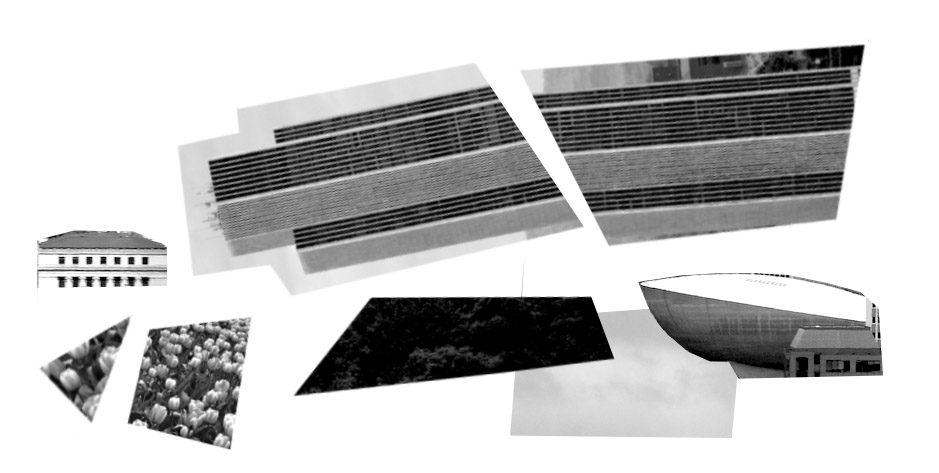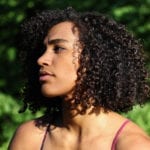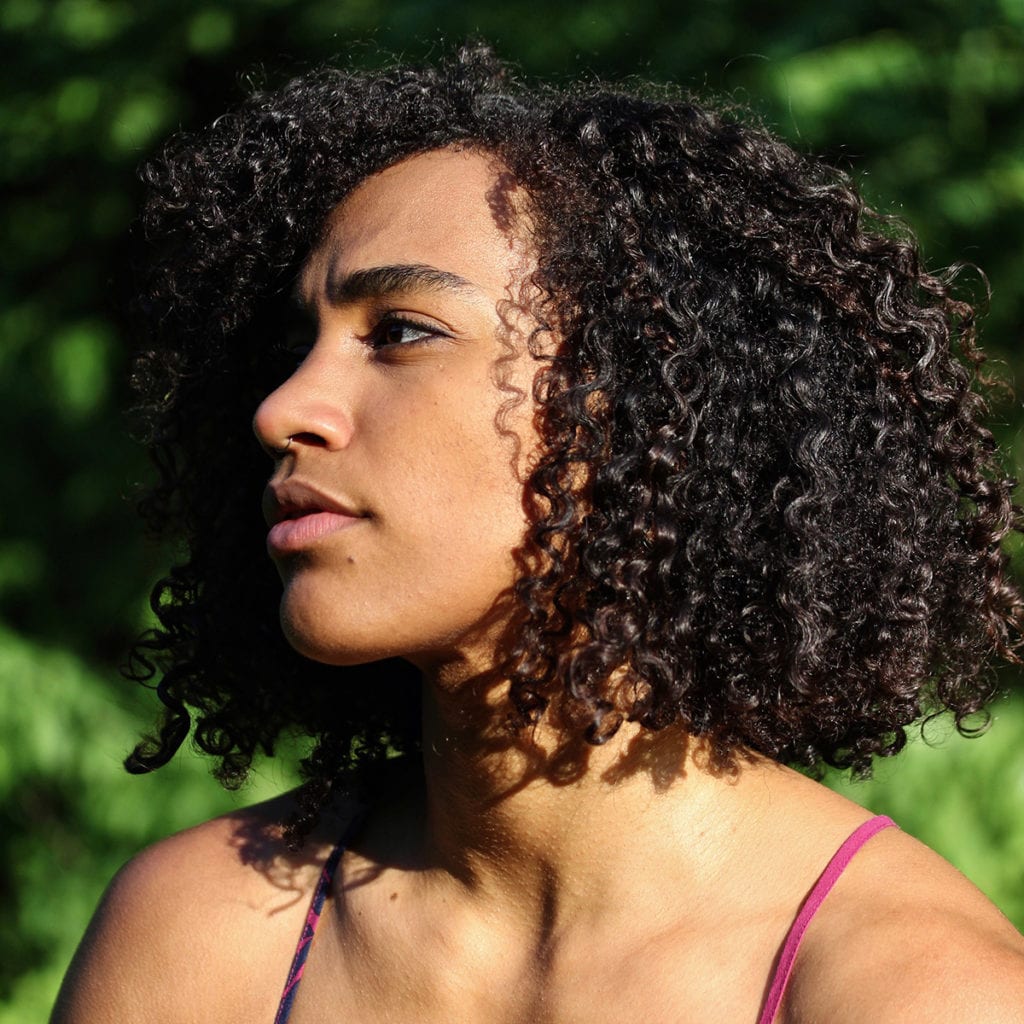
Victoria Rutledge is an E-RYT 500 designated yoga teacher with over a decade of experience who has been practicing in the Albany community for the last five years. Her self-described style is Kripalu-inspired hatha vinyasa yoga and she has a background in critical theory and social justice studies. Rutledge is preparing to hold her second virtual workshop, Grasp at the Root: Uprooting White Supremacy from Healing Spaces, hosted by Lark Street Yoga February 5-7 with collaborators Day Elliot, Europa Grace and Kay Mustafa. Our Shannon Straney spoke with Rutledge:
// This has been a year of COVID. How do you operate in that? Do you do in-person classes anymore?
I’m not. Teaching in-person seems like an absolute wrong choice, especially with all the virtual options available.
I’m super COVID intense. I just go to work and come home and I don’t see anyone. I live alone and it’s lonely and it’s weird. I know a handful of people who’ve died in the last month. There are a few tenets of yoga – nonviolence is one of them. It’s just not the most kind thing to do, to teach in-person. It’s not nonviolent.
Something that this pandemic has revealed is that we all want to be as mindful as possible, but when it comes to doing what we want to do everyone makes exceptions. I’ve had to really depart from moralizing around that, because I’m being so exacting. Everyone has to make their own choices.
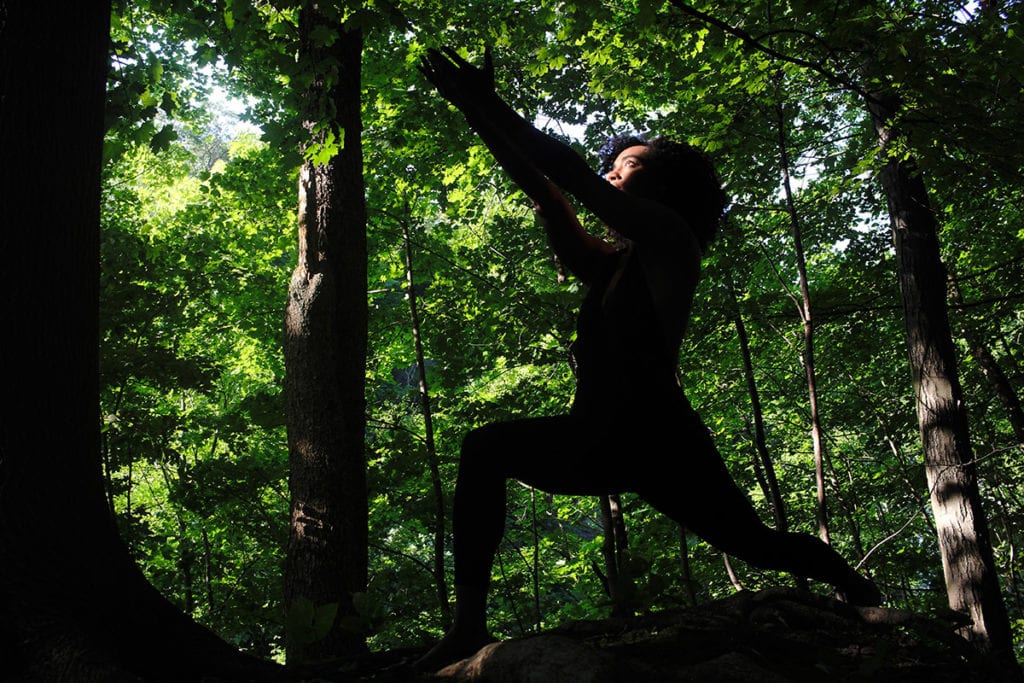
// Has the shift to teaching virtually changed how you’re doing things?
It’s super different.
I try to give way more permission because I can’t see the students. I really try to drill into their heads that it’s their practice. They can modify in any way. They are absolutely empowered to take the parts that work for them and leave what doesn’t.
In terms of teaching in front of a computer, it’s been neat to hone those types of skills – virtual space holding, holding the energy of people who aren’t directly around me.
I do look forward to being with people again. I really love teaching yoga and I miss getting the physical cues from people’s bodies. Now when I teach a class I kind of have my plan and I go and I do it, but when I’m in-person I can see how people are moving through things. I can adjust in the moment. But there’s less of that now.
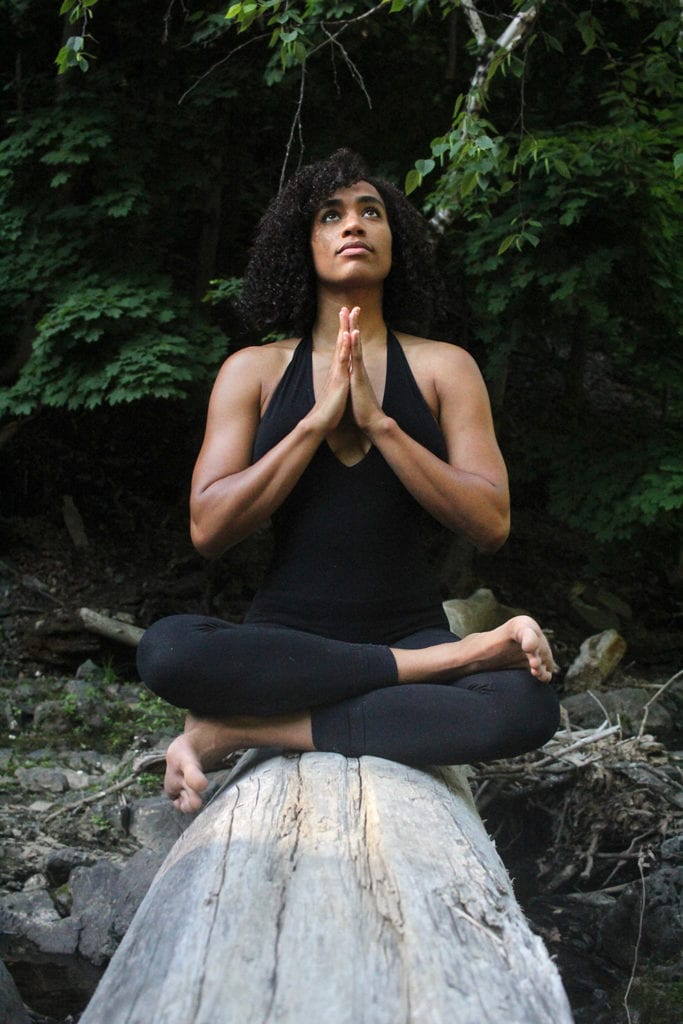
// Let’s talk about your upcoming workshop. What are your intentions for it?
This workshop was born out of the lived experience of me and my co-facilitators – our experience as Black people moving through wellness spaces and the trauma of that. Enduring all those micro-aggressions and underminings and wanting for ourselves a safe and supportive space to practice what we love. As well as meeting what feels like a really urgent need, to come back to the roots of the practice which are really based on spiritual liberation. There is this thread of justice that, for me, is really imbued in the practice of yoga.
One of the most wonderful things about this collaboration is I think we really exemplify that Black people are not a monolith. Everyone has something to offer the conversation if we have the space to listen and really be with each other.
The workshop is called “Uprooting White Supremacy” and I think when people read that it feels confronting, to acknowledge and to hold. It’s been really important for us to have the space be as loving and soft as possible, because we’re dealing with really intense energies and emotions. A lot of shame and guilt and vulnerability comes up in these spaces. It’s important to have spaces where we can kind of exercise those things and liberate ourselves from our mistakes and what we think they mean about who we are.
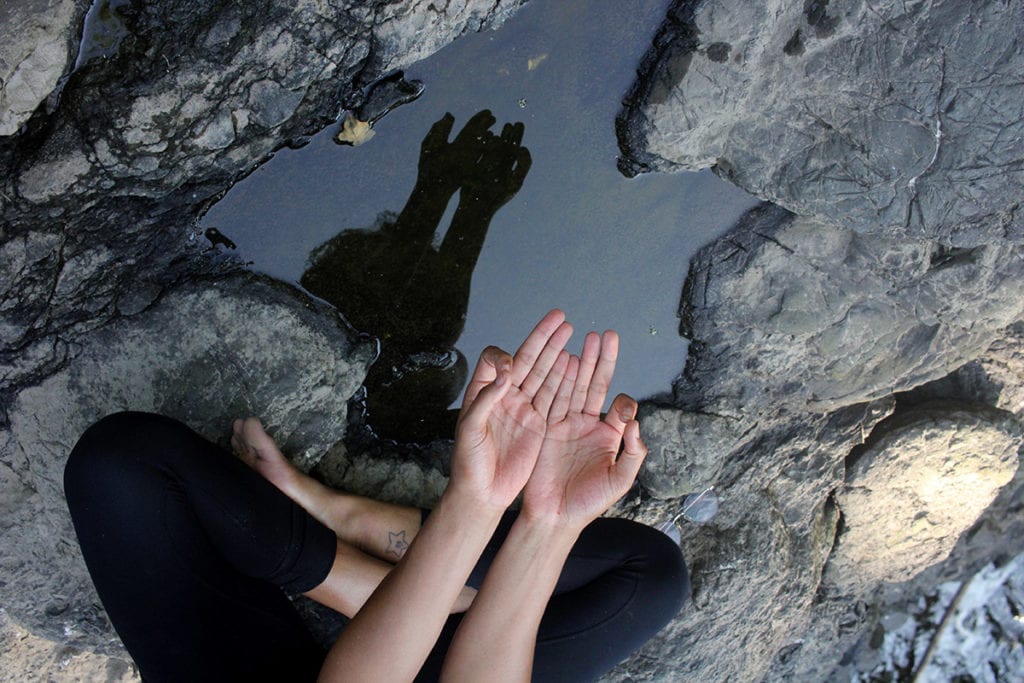
// Like you said, people aren’t a monolith and in the same way a solution isn’t that either.
Absolutely. That’s really a cornerstone of this program. It’s the invitation to observe yourself without being reactionary to your own behaviors and patterns. Accepting your individuality and using that to find what your unique role in this birthing of this new world is. Whether or not people are comfortable with it, things are changing radically.
I feel like societally we’re at this Lady Macbeth point – to go back there will be a lot of blood, to go forward there will be a lot of blood. Just which direction do you want to go? It’s hard. I wish we could just feel good, but there’s a clarification to the challenge.
// Who is the workshop open to?
Everybody. You don’t have to be a teacher. You can be a student. We have chiropractors, a massage therapist joining. Anyone who is in any type of healing modality and wants to deepen their understanding of the nervous system and healing.
// What is your role for the workshop?
In the workshop I lead the yoga nidra, which is a guided meditation with a focus on healing the space of the heart and cultivating self-love and forgiveness. Grounding into the roots of who we are with non-attachment, so we can connect to our identity without making it the entirety of our world.
The second day I co-lead a lecture with Kay Mustafa on critical race theory, the somatic healing in the nervous system, systems of oppression and yoga’s path into western culture. Basically the nervous system response that has allowed yoga culture to develop the way it has. We have these superstar teachers or gurus (which is a word that really needs to be retired, along with namaste), who are offering this information that’s absolutely mind-blowing, completely destabilizing the nervous system, then saying I have the key. So people are falling all over themselves to feel better, when really they already had the means to feel better within themselves.
Then on Sunday I’m co-leading a little bit of movement with Europa.
We all collaborate across the whole workshop. There’s been an incredible amount of healing just in hanging out together on the internet and chatting. There’s a lot of learning and loving and so much respect and reverence for each other’s path into this. It’s really quite lovely.
I’ve been immersed in anti-racist work for as long as I remember. I’ve had a few people be like, “It’s so nice to hear you speaking up about these things now. It seems like you’ve really found your voice.” I was writing Instagram posts in 2014 when Mike Brown died. I’ve been doing this. It’s just that now people are listening.
There’s so much of yoga philosophy that is in real lockstep with critical theory. Critical theory calls us to observe racism and race in America as concepts rather than personal failings or triumphs. We’re observing the culture of whiteness, we’re observing the culture of Blackness – these are ideas that have been socialized into us rather than parts of our identity.
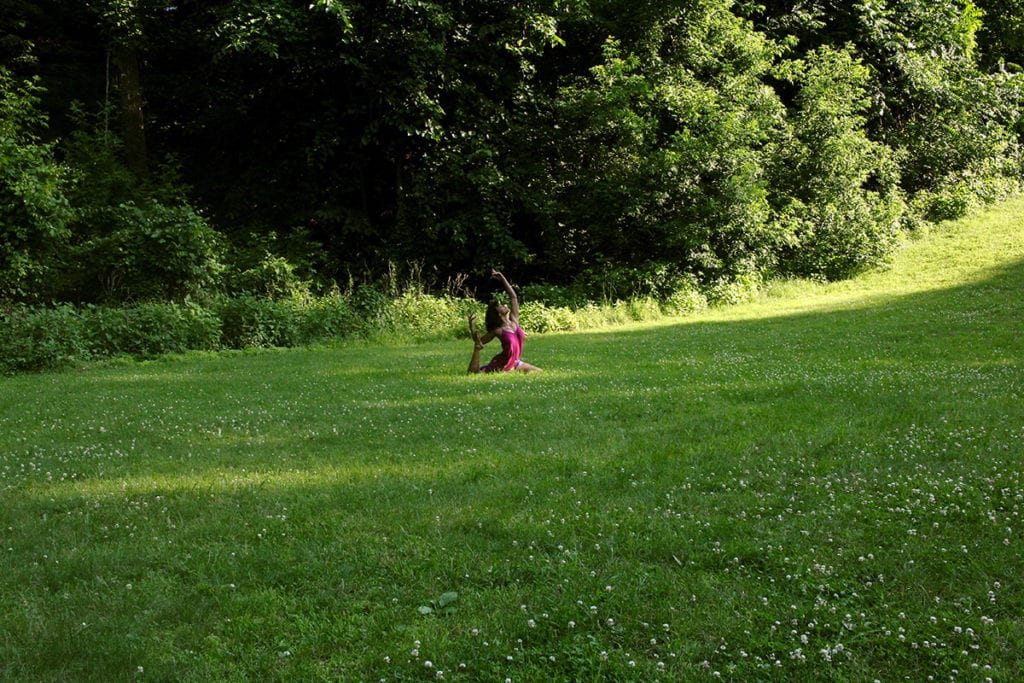
In yoga culture there’s this way we perceive ourselves – ahamkara. It’s the part of us that accumulates our memories, but that’s not our conscious self that’s most connected to all that is… whatever you want to call that. On some level I think we all have an intuitive sense that we’re in communion with nature, with each other.
Critical race theory calls us to occupy that witnessed consciousness. We’re not personalizing these theories. We can actually address them from their theoretical standpoint. People are of two minds about that. Some people say that the theory doesn’t actually help the boots on the ground, but I think for some people it can be a key into better addressing these issues without being triggered into shame and guilt.
// I feel like you, Jammella Anderson… I’ve seen some other people post about yoga and wellness culture and being critical of it not giving enough space, now that the Black Lives Matter movement has been growing over the last year. It’s seems surprising that yoga, something that’s supposed to be so healthy and introspective… that doesn’t seems to be always the reaction from studios or teachers. What has your experience been in the Capital Region?
Oh god, what a loaded question. Before I tackle that, I’m going to address two parts of the question.
The Black Lives Matter movement has been growing since last year, certainly. There’s been more energy, more activity around it. But Black Lives Matter has been in formation since 2013. There are still protestors from Ferguson who are in jail. There were a lot of activists in Ferguson who ended up shot and burned in cars or hanging from trees. “Oh it was a suicide.” But that shit is clearly not a suicide. So I think it’s important to recognize our current political moment in the greater political scope, for one.
Two – I love Jammella as a human being. I think she’s fabulous and doing excellent work. We are both yoga teachers and we are both Black. But Jammella and I are also not a monolith. I talk to a lot of people and they’re like, “I’m so grateful for the work you and Jammella are doing. You and Jammella…”
We teach very different styles of yoga. We’re applying our skills in different ways. There’s a part of me that feels miffed to constantly be looped in because to me it speaks to our culture’s inability to see Black people as separate.
That being said, my experience with yoga culture in the Capital Region has been middling at best.
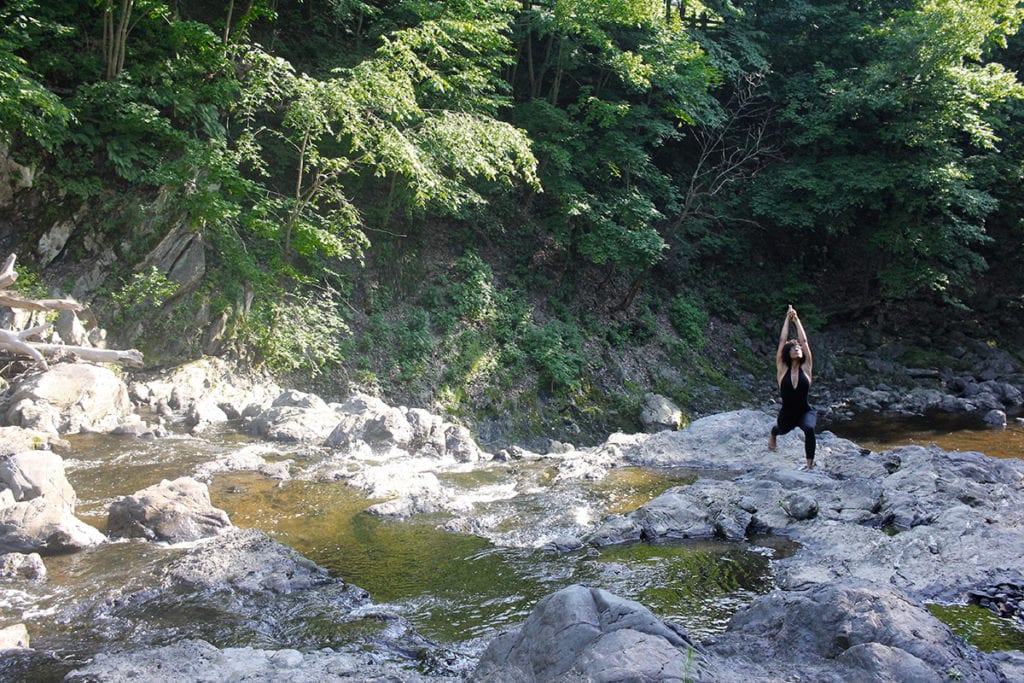
I think there are a lot of people who truly don’t have the container to really dig into our current cultural moment. It would be too destabilizing. It would be too confronting. There’s a part of me that thinks that people should toughen up and that they need to, because to be on the right side of this historical moment takes active engagement.
There are a lot of people who cannot and won’t be in the reality of this moment. They are losing a depth of feeling and awareness. It really typifies how white supremacy isn’t just damaging to Black people, it’s damaging to everyone. An inability to stay in critical moments, to sit in discomfort… To kind of highlight politeness and niceness and money over morality – that’s damaging to the people who perpetuate it.
There is a lot of cultural appropriation. There’s a lot of spiritual bypassing. There’s a lot of taking the feel-good parts of the practice and putting away the parts that are confronting. That is super effective because it’s comfortable and it makes people look hot. You know, I think about me, 19 years old – yeah, I was doing it because I wanted to look hot. For many people that’s why they’re there and I can’t be mad at those people.
Exercise is important. Spiritual development is less important to a lot of people. We all have an allotment of energy. If you’re not living in reality some of that energy is being just burned up maintaining your falsehoods. For me personally as a human being, as a Black person, as a yoga teacher – I can’t preoccupy myself with what other people are doing. I’ve had to really pivot and connect the work that I find important.
I think the things that are really really important to me are that people should know that this workshop is a safe and soft space for healing, that living in reality is liberating and that white supremacy hurts everyone. Black people are not a monolith. Many of us have been speaking up for years. It’s important to notice why and where you started listening and what that means. And that’s a personal question for everybody.
Also that I still am in love with yoga and asana. I know for sure that me and my co-facilitators are trying to help and allow people to find their place in the new world we’re trying to birth together.
